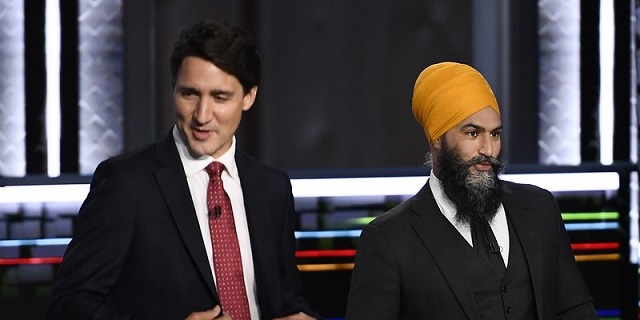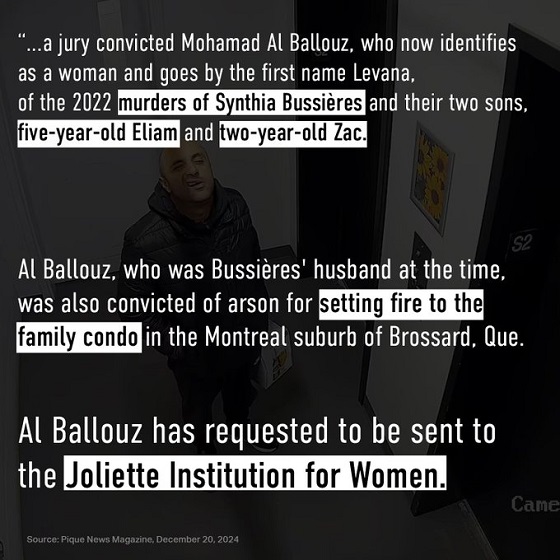Opinion
Trudeau and Singh Scheme to Delay Election, Secure Payouts on the Taxpayer’s Dime

Here’s the scheme: Trudeau and his Liberal-NDP alliance want to push the election back by a week. Not to secure democracy, not to make voting accessible, but to guarantee that MPs who were elected in 2019 get their golden parachute—hitting that magic six-year mark to cash in on their pensions. They’re wrapping it all up in talk about “accessibility” and “inclusivity,” but the facts laid out in committee make it clear—this is nothing more than a taxpayer-funded jackpot for Trudeau’s coalition. It’s like watching a heist in slow motion, and the people pulling it off are your elected officials.
Let’s break down the facts: Bill C-65 is presented as a way to make voting “inclusive” by moving the election from October 20 to October 27 to avoid overlapping with Diwali. Really? Suddenly the Trudeau government is all about Diwali? When did Justin Trudeau become the defender of every cultural holiday? If that were true, they’d be calling a snap election to get back to Canadians sooner, not later. But this isn’t about inclusivity; it’s about squeezing the system dry for every penny they can get.
Conservative MP Eric Duncan and Bloc MP Marie-Hélène Gaudreau saw right through it. They grilled Trudeau’s Privy Council Office (PCO) witnesses, who came armed with vague talking points but no real answers. The obvious question: Why push the election back when we already have advance polling? The answer? Crickets. The PCO’s representatives mumbled about “scheduling challenges” and “inclusivity,” but never explained why delaying the election is somehow the only solution.
And who’s standing right next to Trudeau in this scheme? The NDP. Trudeau’s favorite backup team, once again signing onto a shady deal to keep their coalition afloat. The NDP’s MP Daniel Blaikie was all in, rubber-stamping the date change. The reason? This move locks in the pensions not just for Liberals, but for their NDP buddies too. The whole thing reeks of backroom deals and mutual back-scratching. It’s a classic case of “you scratch my back, I’ll scratch yours”—and Canadian taxpayers are left footing the bill.
In committee, Liberal MP Mark Gerretsen tried to play damage control, dismissing the pension concern as “Conservative scandal-mongering.” That’s right, folks: If you’re upset that your tax dollars are funding a Liberal-NDP pension scheme, Gerretsen says you’re the problem. He and his Liberal colleagues want you to believe that this bill is about “democracy.” But tell me, how democratic is it to change election dates so politicians can milk the system?
The Damning Parts of Bill C-65
So what are the most damning parts of Bill C-65? It’s a textbook case of self-serving political maneuvering. First, there’s the election date change itself—a convenient one-week delay that coincides perfectly with the deadline for MPs elected in 2019 to secure their pensions. This timing isn’t just suspicious; it’s blatant. With no other compelling reason, Trudeau’s Liberals are trying to sell the public on a delay that just happens to benefit their own pocketbooks. What’s even more shocking is that they’re hiding behind Diwali, as if Canadians can’t see right through it.
And the privacy implications? Almost completely glossed over. Bill C-65 falls flat on providing robust privacy protections. Instead, it opens the door for political parties to access voters’ sensitive data under a weak framework that offers minimal oversight. This is more than a missed opportunity; it’s an intentional sidestep to ensure politicians retain easy access to personal information for campaigning purposes.
Then there’s the lack of genuine accountability for foreign interference. Sure, they included some anti-interference provisions, but glaring loopholes remain. Leadership races and nomination contests are still fair game for foreign influence. The Liberals tout this bill as election protection, but when it comes to securing the integrity of the entire process, they’ve left the doors wide open.
Trudeau’s Swamp: When “Inclusivity” Is Just a Cover for Corruption
Let’s be clear about what’s happening here. Justin Trudeau’s government isn’t interested in protecting democracy; they’re interested in protecting their own pockets and political power. Bill C-65 is the latest swamp maneuver by a Liberal-NDP alliance that wants you to believe their motives are pure, cloaking a blatant cash grab under the guise of “inclusivity” and “accessibility.” But real inclusivity doesn’t need backroom deals or sudden election delays. Real inclusivity doesn’t make a mockery of Canadians’ intelligence by pretending a pension-padding scheme is about respecting religious holidays.
This is Trudeau’s swamp at its finest—sneaking in self-serving perks under the cover of high-minded ideals. By claiming they’re moving the election for “cultural sensitivity,” they’re hoping Canadians will overlook what’s really going on: a calculated effort to stretch their time in office just long enough to qualify for generous pensions. And Jagmeet Singh? He’s right there beside Trudeau in this scheme, securing his own taxpayer-funded future, while selling out the values he claims to stand for. This is a backroom deal that pays off for everyone except Canadian taxpayers, who get nothing but excuses and empty rhetoric.
And when opposition MPs raised these glaring issues—why Canadians are seeing no real electoral reforms or accountability—Trudeau’s team sidestepped, evaded, and downplayed. Even the so-called “anti-interference” measures fall flat, with loopholes so wide you could drive a truck through them. Foreign interference protections that ignore internal nomination contests? Privacy policies that allow political parties to dip into Canadians’ data with next to no oversight? It’s government overreach at best, outright negligence at worst, and yet they insist this is all about “democracy.”
If Trudeau’s government truly cared about protecting democracy, they wouldn’t be delaying elections to suit their pension schedules. They’d be calling an election to let Canadians decide who deserves to lead, right now. But they won’t do that because they know they’re losing the trust of Canadians, who are waking up to these games. They’d rather delay, manipulate, and cash in, hoping that enough time will make people forget this little “adjustment” to the election date.
This isn’t just political maneuvering; it’s a power grab. Trudeau and Singh are the faces of a swamp that puts self-interest before public service, personal gain before genuine leadership. They’re bending the rules to keep themselves and their allies comfortable, all while counting on Canadians to stay distracted. But Canadians are smarter than that, and they’re watching as this government dips into their wallets, lines their own pockets, and calls it “inclusivity.”
This is government corruption disguised as progressivism. This is your leadership in Canada today—when the very people elected to serve Canadians are the ones robbing them blind, hiding behind “woke” language to pull off their heist. Trudeau’s swamp doesn’t just run deep; it’s becoming the whole system. And every day they stay in power, they’re counting on Canadians to look the other way.
Subscribe to The Opposition with Dan Knight . For the full experience, upgrade your subscription.
Daily Caller
AI Needs Natural Gas To Survive


From the Daily Caller News Foundation
By David Blackmon
As recent studies project a big rise in power generation demand from the big datacenters that are proliferating around the United States, the big question continues to focus in on what forms of generation will rise to meet the new demand. Most datacenters have plans to initially interconnect into local power grids, but the sheer magnitude of their energy needs threatens to outstrip the ability of grid managers to expand supply fast enough.
This hunger for more affordable, 24/7 baseload capacity is leading to a variety of proposed solutions, including President Donald Trump’s new executive orders focused on reviving the nation’s coal industry, scheduled to be signed Tuesday afternoon. But efforts to restart the permitting of new coal-fired power plants in the US will require additional policy changes, efforts which will take time and could ultimately fail. In the meantime, datacenter developers find themselves having to delay construction and completion dates until firm power supply can be secured.
Datacenters specific to AI technology require ever-increasing power loads. For instance, a single AI query can consume nearly ten times the power of a traditional internet search, and projections suggest that U.S. data center electricity consumption could double or even triple by 2030, rising from about 4-5% of total U.S. electricity today to as much as 9-12%. Globally, data centers could see usage climb from around 536 terawatt-hours (TWh) in 2025 to over 1,000 TWh by 2030. In January, a report from the American Security Project estimated that datacenters could consume about 12% of all U.S. power supply.
Obviously, the situation calls for innovative solutions. A pair of big players in the natural gas industry, Liberty Energy and Range Resources, announced on April 8 plans to diversify into the power generation business with the development of a major new natural gas power plant to be located in the Pittsburgh area. Partnering with Imperial Land Corporation (ILC), Liberty and Range will locate the major power generation plant in the Fort Cherry Development District, a Class A industrial park being developed by ILC.
“The strategic collaboration between Liberty, ILC, and Range will focus on a dedicated power generation facility tailored to meet the energy demands of data centers, industrial facilities, and other high-energy-use businesses in Pennsylvania,” the companies said in a joint release.
Plans for this new natural gas power project follows closely on the heels of the March 22 announcement for plans to transform the largest coal-fired power plant in Pennsylvania, the Homer City generating station, into a new gas-fired facility. The planned revitalized plant would house 7 natural gas turbines with a combined capacity of 4.5 GW, enough power 3 million homes.
Both the Homer City station and the Fort Cherry plant will use gas produced out of the Appalachia region’s massive Marcellus Shale formation, the most prolific gas basin in North America. But plans like these by gas companies to invest in their own products for power needs aren’t isolated to Pennsylvania.
In late January, big Permian Basin oil and gas producer Diamondback Energy told investors that it is seeking equity partners to develop a major gas-fired plan on its own acreage in the region. The facility would primarily supply electricity to data centers, which are expected to proliferate in Texas due to the AI boom, while also providing power for Diamondback’s own field operations. This dual-purpose approach could lower the company’s power costs and create a new revenue stream by selling excess electricity.
Prospects for expansion of gas generation in the U.S. received a big boost in January when GE Vernova announced plans for a $600 million expansion of its manufacturing capacity for gas turbines and other products in the U.S. GE Vernova is the main supplier of turbines for U.S. power generation needs. The company plans to build 37 gas power turbines in 2025, with a potential increase to over 70 by 2027, to meet rising energy demands.
The bottom line on these and other recent events is this: Natural gas is quickly becoming the power generation fuel of choice to feed the needs of the expanding datacenter industry through 2035, and potentially beyond. Given that reality, the smart thing to do for these and other companies in the natural gas business is to put down big bets on themselves.
David Blackmon is an energy writer and consultant based in Texas. He spent 40 years in the oil and gas business, where he specialized in public policy and communications.
2025 Federal Election
‘Sadistic’ Canadian murderer claiming to be woman denied transfer to female prison

From LifeSiteNews
The logical decision to house the male murderer with men flies in the face of the Liberal Party’s official stance, which is to incarcerate prisoners according to their ‘self-identified’ gender.
A Canadian man who butchered his family and now claims to be a woman will not be allowed to transfer to a female prison.
On April 8, Correctional Services Canada (CSC) announced that Mohamad Al Ballouz, who brutally murdered his wife and two children, will be sent to a men’s prison, despite claiming to be a woman, according to CTV News.
“When there are overriding health and safety concerns, the request is denied and alternatives are put in place to meet the offender’s gender‑related needs at the institution where they are incarcerated,” the CSC statement reads.
Following an assessment of Al Ballouz request, CSC confirmed that he “will be incarcerated in a men’s institution.”
On December 16, Al Ballouz, a 38-year-old from Quebec, was found guilty second-degree murder of his wife Synthia Bussières, first-degree murder of five-year-old Eliam and two-year-old Zac, and one count of attempted arson.
Crown prosecutor Éric Nadeau revealed that the murder took place in September 2022 when Al Ballouz slaughtered his family at their Brossard apartment. He stabbed his wife 23 times before suffocated his children and trying to set the apartment on fire. He then ingested windshield washer fluid, which is believed to have been a suicide attempt.
During the trial, Quebec Superior Justice Eric Downs described Al Ballouz, as having a “sadistic character” and being “deeply narcissistic.” He was sentenced to life imprisonment with no chance of parole for 25 years.
Throughout the trial, Al Ballouz, a biological male, claimed to be a woman and demanded that he be referred to as “Levana,” a change which was made after he was charged for his crimes. Notably, the Canadian Broadcasting Report’s (CBC’s) report of the case refers to the convicted murder as “she” and uses his fake name.
Following his sentencing, the murderer requested to be sent to the Joliette Institution for Women; however, Downs responded that is a decision for Correctional Service Canada.
Currently under the Liberal Party, the policy is to place prisoners according to their “self-identified” gender, not according to biology. As a result, male rapists and murderers can be sent to prison with females.
However, Al Ballouz’s case caused an uproar on social media as many pointed out that putting the murderer in a women’s prison would pose a danger to female inmates.
Conservative Party leader Pierre Poilievre has condemned the Liberal policy and promised that he would end this practice if elected.
“Surreal: A man who killed his wife and two kids now claims he is a woman to go to a female prison,” he wrote in a December 22 post on X.
“I can’t believe I have to say this: but when I’m PM, there will be no male prisoners in female jails,” Poilievre continued. “Period.”
-

 2025 Federal Election1 day ago
2025 Federal Election1 day agoResearchers Link China’s Intelligence and Elite Influence Arms to B.C. Government, Liberal Party, and Trudeau-Appointed Senator
-

 2025 Federal Election1 day ago
2025 Federal Election1 day agoRCMP memo warns of Chinese interference on Canadian university campuses to affect election
-

 MAiD2 days ago
MAiD2 days agoDisability rights panel calls out Canada, US states pushing euthanasia on sick patients
-

 Justice2 days ago
Justice2 days agoCanadian government sued for forcing women to share spaces with ‘transgender’ male prisoners
-

 Alberta2 days ago
Alberta2 days agoAlberta takes big step towards shorter wait times and higher quality health care
-

 Energy2 days ago
Energy2 days agoTrump signs four executive orders promoting coal industry
-

 COVID-1923 hours ago
COVID-1923 hours agoFauci, top COVID officials have criminal referral requests filed against them in 7 states
-

 Censorship Industrial Complex18 hours ago
Censorship Industrial Complex18 hours agoFormer residential school student refutes ‘genocide’ claims, recalls positive experience











